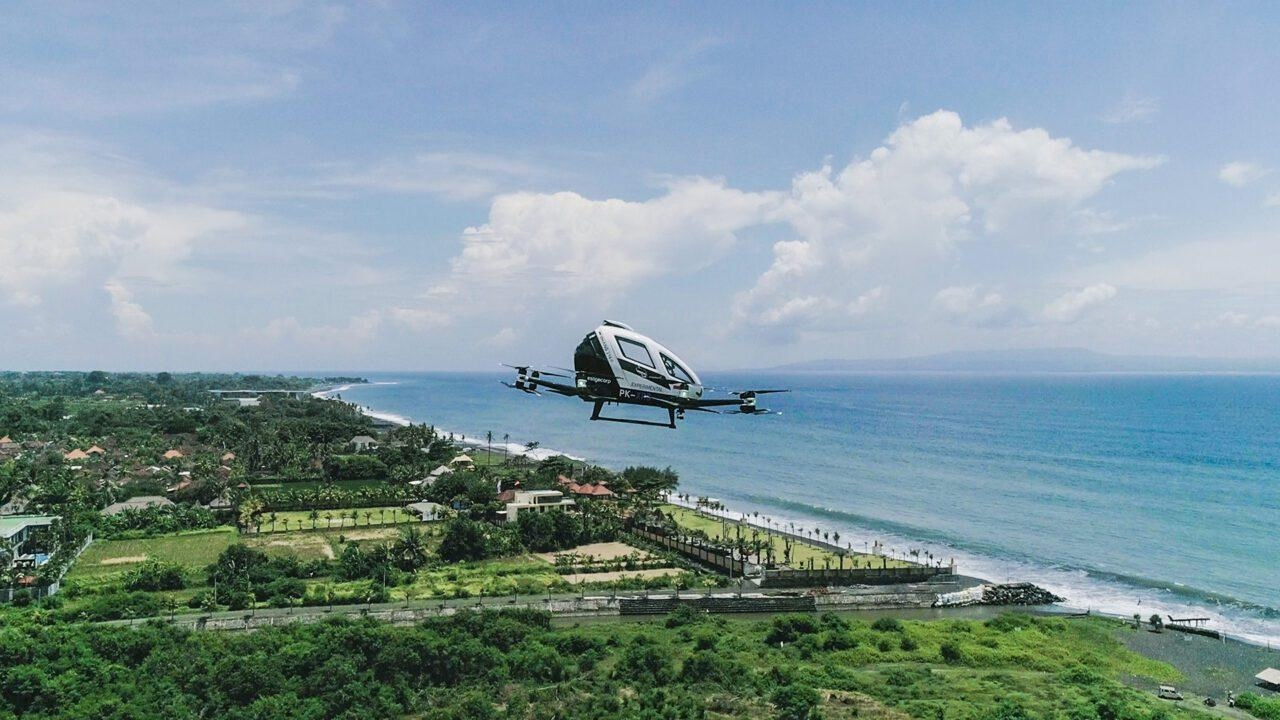
Smarter email, faster business.
Trending
Indonesia and Five Countries Collaborate on Launch of Flying Taxis in Bali

Indonesia and International Partners Unite to Launch Flying Taxis in Bali
Indonesia has announced a collaborative initiative with the United States, Canada, Australia, Brazil, France, and the United Arab Emirates to introduce flying taxis to the island of Bali. This pioneering project aims to deploy electric vertical take-off and landing (eVTOL) air taxis by 2028, positioning Bali at the forefront of innovative transportation solutions. Known for its stunning natural landscapes and rich cultural heritage, Bali is poised to transform its tourism and urban mobility sectors through this cutting-edge technology.
Advancing Bali’s Tourism and Transportation Landscape
The initiative is spearheaded by PT Dirgantara Indonesia (PTDI), the country’s national aerospace company, in partnership with PT Vela Prima Nusantara. Their primary models, the Vela Alpha and Intercrus Sola, have been specifically engineered to address the unique geographical and logistical challenges posed by Bali’s environment and its high volume of tourists. These eVTOL aircraft are designed to serve both public and commercial transportation needs, potentially revolutionizing how visitors and residents navigate the island.
The introduction of flying taxis is expected to alleviate Bali’s chronic traffic congestion by providing a sustainable and premium alternative to ground travel. Passengers will have the opportunity to bypass lengthy road delays while enjoying aerial views of the island’s iconic scenery. This development aligns Bali with other global cities such as Dubai, Abu Dhabi, and Singapore, which are actively exploring similar air mobility solutions.
Despite the promise of this technological leap, several challenges remain. Regulatory coordination between Indonesia and its international partners is critical to establish unified safety standards and operational protocols. The development of necessary infrastructure, including vertiports and charging stations, will be vital to support the new air transport ecosystem. Furthermore, comprehensive pilot training and certification programs must be implemented to ensure operational safety and reliability.
Navigating Global Competition and Market Challenges
Bali’s flying taxi project emerges amid a rapidly evolving global eVTOL market. While cities like Dubai and Singapore have made significant investments in this sector, other regions, particularly in Europe, are witnessing a cautious shift toward more conventional aircraft designs following recent market fluctuations. The collaboration between Indonesia and its international partners could stimulate further innovation and investment, but it also underscores the importance of regulatory harmonization and market preparedness.
As the 2028 target date approaches, industry stakeholders and tourism officials are intensifying efforts to ready the island for this transformative mode of travel. The successful deployment of flying taxis could herald a new era of luxury and efficiency in urban mobility for Bali, potentially making its skies as vibrant as its renowned beaches.
While uncertainties persist regarding regulatory frameworks, infrastructure development, and market acceptance, Bali’s flying taxi initiative exemplifies Indonesia’s ambition to become a leader in next-generation transportation. The global community watches with keen interest to see whether this ambitious vision will indeed take flight.